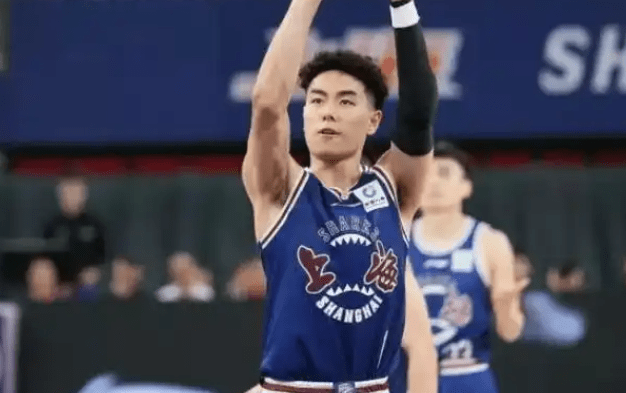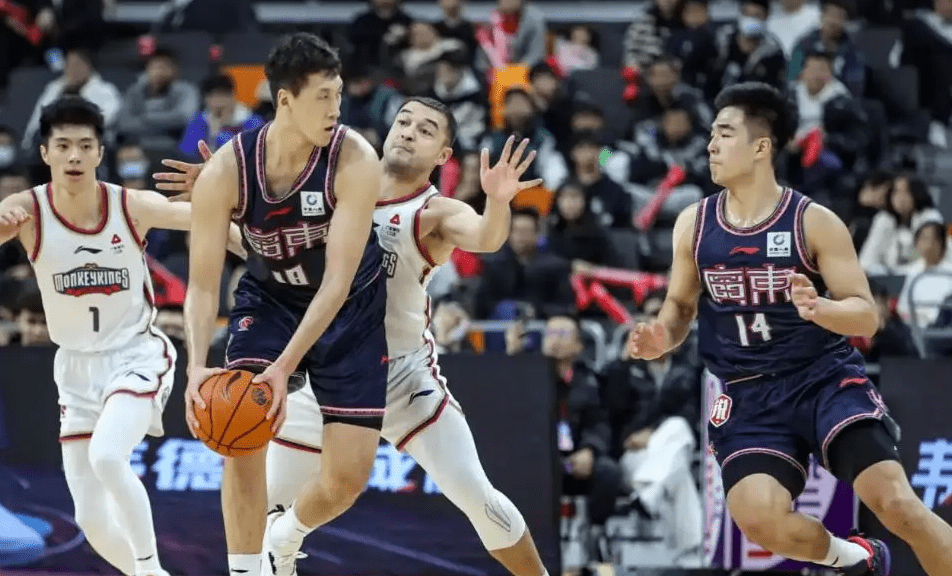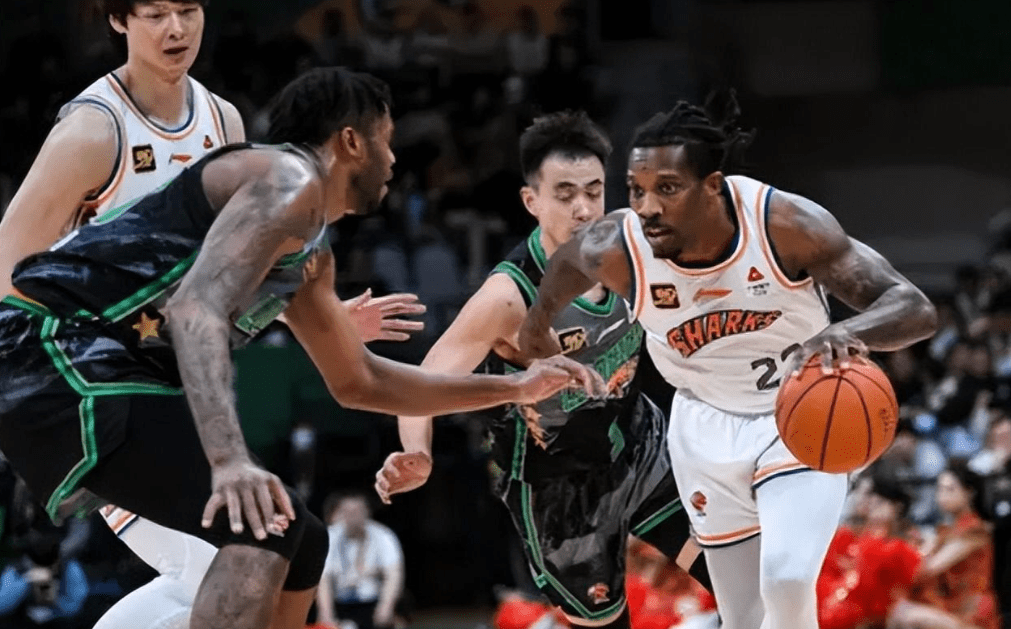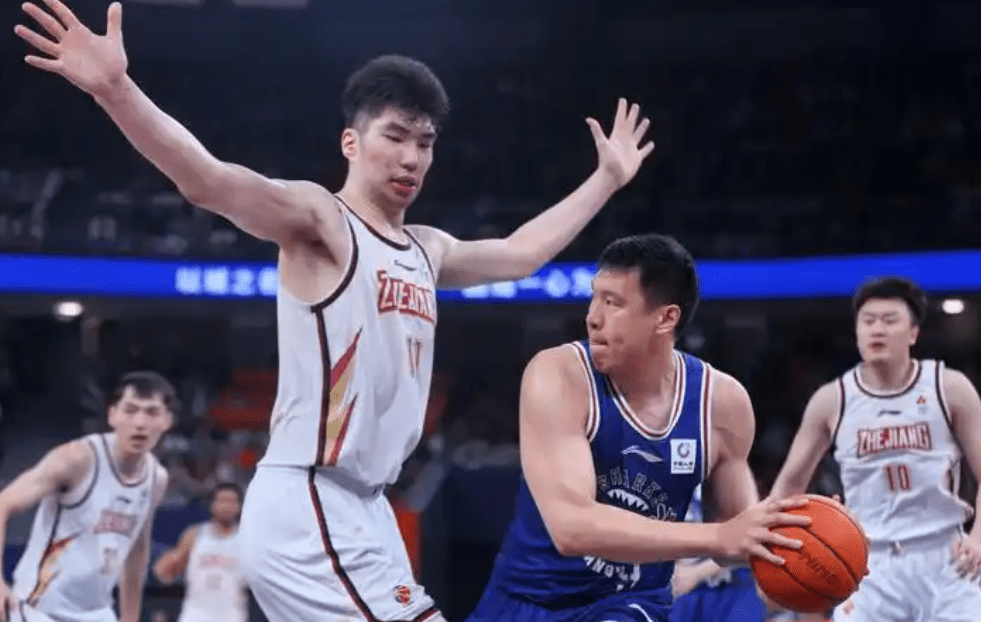The winning streak comes to an end, but where does the problem lie? The Shanghai men's basketball team suffered a defeat against Liaoning, revealing three major issues, with the referees also playing a controversial role. The team's 16-game winning streak came to a halt as they lost by just 3 points in the 31st round against Liaoning, falling short of achieving 17 consecutive victories.

This highly anticipated and intense match was marred by dramatic moments that left fans with mixed feelings: controversial refereeing decisions repeatedly disrupted the flow of the game; injuries and a lack of core lineup depth made it difficult for Shanghai to compete with Liaoning in the paint; and the confusion in handling crucial plays led to missed opportunities for victory. Is the issue with the team itself or with the CBA referees, who seem to be plagued by long-standing problems? This match was not a simple defeat but more like a comprehensive assessment of the champion Liaoning team and the rising dark horse, Shanghai.

It must be said that this season's Shanghai team has truly shown its potential for a remarkable comeback. Who could have imagined that a team that was fighting for playoff qualification last season would go on to achieve 16 consecutive wins? What's even more encouraging is the emergence of young players within the team, especially Li Hongquan and Li Tianrong, who have almost become the two aces of Shanghai's future. Taking this match as an example, despite ultimately losing, Li Hongquan's efficient performance provided some comfort to the entire team, scoring 23 points with a fearless attitude, reminiscent of a "young bull not afraid of tigers."

Compared to Li Hongquan's outstanding performance, Li Tianrong's play seemed somewhat awkward. As one of the backcourt cores, he needed to take on more organizational responsibilities after Bradso was controversially ejected by the referee, but he appeared indecisive, with several hesitant passes at key moments directly leading to missed opportunities. This exposed areas where he still needs to improve under high-intensity competition - his passing and control need to be more stable, and his vision requires further enhancement. However, overall, this loss did not diminish the shine of these two young players. Especially seeing Li Hongquan's calmness and boldness, fans can still optimistically look forward to Shanghai's young players taking on major roles in two or three years.

But basketball is not just about one or two standout players; it's about the whole team. Young players are sometimes like the few grains of rice in a pot of porridge, adding highlights but unable to fully address whether the porridge is thick enough. It's clear that Shanghai's overall performance in the paint, refereeing, and critical play handling seemed lacking.

To challenge opponents like Liaoning, who are reigning champions, relying solely on the energy and individual efforts of young players is insufficient. The loss in this match was entirely due to the following three pitfalls.

Lofthouse's absence due to injury and Wang Zhelin playing through pain meant that Shanghai's frontline was in a passive position throughout the game. Liaoning is known for their strong frontline, which caused significant trouble for Shanghai, with them trailing in rebounds and being suppressed in scoring within the restricted area. Despite Wang Zhelin's best efforts, he appeared to have more heart than strength when his physical condition was not at its peak. He still managed to put up a brilliant personal performance to save face for Shanghai, but he seemed unable to hold up under the overall intensity of the competition.

Compared to Liaoning's consistent output throughout the game, Shanghai was almost overwhelmed in second-chance scoring opportunities, reflecting deficiencies in the team's roster depth and tactical adaptability. The two teams were not on the same level in terms of frontline confrontation, which is the most obvious dividing line between truly top-tier teams and challengers.

During the stalemate phase of the game, the referees once again "stole the show," with Bradso being ejected after being called for a technical foul when confronting the referee. This became the turning point of the entire match. Bradso, who was Shanghai's absolute core and playmaker, was the engine of the team's offense. His ejection directly destroyed Shanghai's offensive rhythm in the final quarter.

The referees' calls incited fan uproar on one side, while Li Tianrong stepped up on the other but failed to fully take over the task of controlling the game. Several indecisive offensive organizations allowed Liaoning to seize the initiative, gradually taking control of the game away from Shanghai.

In fact, not only in this match but throughout the season, controversial refereeing decisions in the CBA have become a frequently discussed topic. From the key ball decisions in the 26th round against Guangdong to the technical foul on Bradso and the controversial call during Li Tianrong's rebounding in this match, these issues have been a headache for Shanghai and caused fans to worry about the referees. The inconsistent refereeing standards continue to undermine the game's观赏性和信服力。
Despite Shanghai trailing by 17 points in the third quarter, they managed to close the gap with resilience and Li Hongquan's outstanding performance. However, when the game entered the decisive final five minutes, Shanghai's ability to handle critical plays revealed shortcomings. The head coach lacked decisiveness in the timeout arrangements, and the players appeared disorganized in executing tactics, ultimately failing to score on several attempts. Compared to Liaoning's precise decision-making and experience, their on-court performance was still lacking in finesse.
From Liaoning's perspective, this match fully demonstrated the strength of the defending champions. Whether it was Ferg's individual breakthroughs, Li Xiaoxu's defensive experience, or Guo Ailun's playmaking abilities, they all showcased the tenacity of a top-tier team at crucial moments. Especially Liaoning's defense and rhythm control allowed them to regain the lead when the scores were tied, demonstrating the absolute big heart unique to top teams.
However, this match also showed us that there is still a considerable gap between Shanghai and top teams like Liaoning. This is not necessarily a bad thing. After all, Shanghai's men's basketball team is on the rise, and this team has already impressed many. Improving the lineup, enhancing the ability to handle critical plays, and the growth of young players are all foreseeable "variables." Liaoning's stability is what Shanghai should strive to catch up with as a model.
This match left fans feeling both regretful and hopeful. Regretful that Shanghai's 16-game winning streak ended; hopeful that the young and energetic players are heading towards a bright future. Basketball games, like life, always have ups and downs. Although Shanghai stumbled this time, identifying the problems and facing challenges head-on is what truly matters. From this matchup, we can see that there is still a gap from the "top," but in the future, their brilliance may be too bright for Liaoning to overlook.